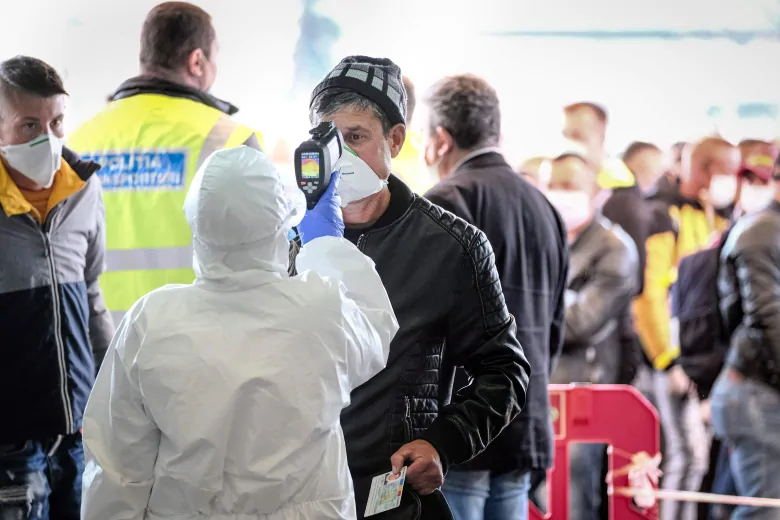Air Canada’s plan to introduce mandatory temperature checks for COVID-19 to all passengers in an effort to assure Canadians it’s safe to return to the skies raises privacy concerns, legal and privacy analysts say.

Air Canada’s plan to introduce mandatory temperature checks for COVID-19 to all passengers to help assure Canadians it’s safe to return to the skies raises privacy concerns, legal and privacy analysts say.
Privacy experts warn it could breach privacy laws to ask for such sensitive personal information if it’s unnecessary and not evidence-based.
Canada’s top doctor has said temperature testing is “not effective at all” to identify people who have COVID-19. The government also doesn’t require airlines to conduct this new screening measure.
Ann Cavoukian, Ontario’s former information and privacy commissioner, calls Air Canada’s move to become the first airline in North America to roll out this mandatory temperature checks “ridiculous.”
“It’s so outrageous what they’re doing,” said Cavoukian, who is concerned it’s a quick fix — just for optics — to make people psychologically feel more comfortable getting back on planes.
“If I was commissioner, I would really clamp down hard and say to Air Canada what authorization do you have to collect personal information?”

After Air Canada posted a billion-dollar loss during the initial phase of the pandemic, the hard-hit carrier is focusing on the relaunch of the industry, scheduled for June, and ensuring it’s safe for the public to get back on planes. The airline said it’s required by law to monitor the fitness of travellers during the pandemic and the temperature tests are an additional layer of screening that fulfils its obligations.
“We recognize that a person’s temperature alone cannot be used to determine COVID-19, however, we view temperature readings as a measure to help us meet the government requirement to be vigilant for potential cases,” Air Canada said in a statement to CBC News.
‘Temperature taking is not effective at all’
The Minister of Transport’s office said it has no plans to make the testing mandatory or recommend other carriers follow suit.
On the same day Air Canada announced its new measures, Canada’s Chief Public Health Officer, Dr. Theresa Tam, said temperature testing is ineffective for detecting people with the virus.
“The more you actually understand the virus, the more you begin to know that temperature-taking is not effective at all,” Tam said on May 4. “Even if you are infected, we know that the likelihood of picking up someone who is symptomatic is sort of, relatively, inefficient.”
People can mask a fever with medication and in many cases are asymptomatic altogether, she’s said during the pandemic.
‘Additional layer of safety screening’
Starting May 15, Air Canada customer service agents will be offered as much head-to-toe personal protective equipment as a front-line worker at a hospital, according to their union. They’ll be asked to hover a handheld device five centimetres from customers’ foreheads, likely before going through security, said Unifor.
The device uses an infrared beam to capture a person’s temperature in seconds. If a customer is found to have a temperature higher than 37.6 C degrees, Air Canada said it can consult with a medical expert and then decide if it will turn the customer away.

Air Canada said the checks are part of a multilayered approach it’s taking to minimize the risk of the virus.
“Temperature checks are an additional layer of s

